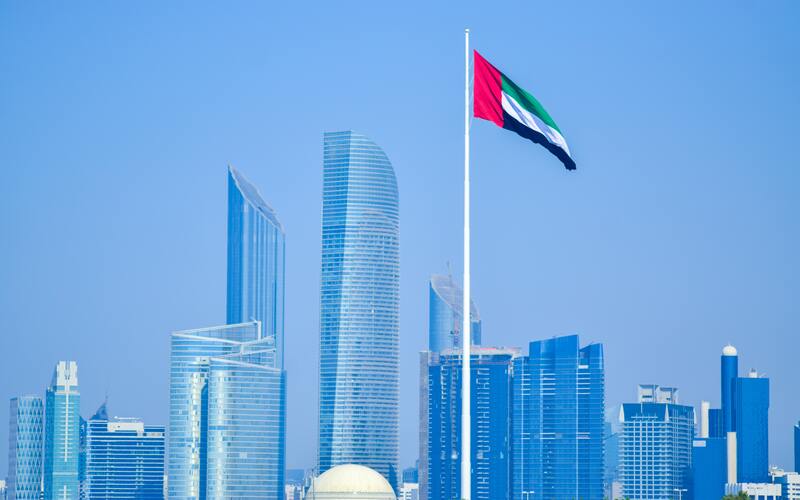Azizi Developments, one of the leading real estate developers in Dubai, aligns with the most recent announcement of the UAE’s Ministry of Human Resources and Emiratisation (MoHRE), revolving around UAE Emiratisation.
But what is UAE Emiratisation? What is its significance? What does it require from the private sector in Dubai? Continue reading to learn the answers and discover how Azizi aligns with these requirements.
What is UAE Emiratisation?
UAE Emiratisation refers to the employment of UAE citizens in the private sector, as announced by the UAE Ministry of Human Resources and Emiratisation, and it is one of the government’s highest priorities.
It is widely known that the UAE, specifically Dubai, are international hubs for businesses, trade, tourism, entertainment, and other sectors, attracting many international investors and foreign working individuals and families into the country. In other words, the private sector has hired many foreigners. Now, it is time to focus on empowering UAE nationals and reassuring their significant role in the success and continuous development of the country.
So, that is the definition of UAE Emiratisation, but how does it translate into reality?
UAE Emiratisation and Nafis
For UAE Emiratisation to be implemented, the Emirati Human Resources Competitiveness Council, also known as Nafis, carries out various national initiatives to increase the employment of UAE citizens in the private sector. But how does Nafis support them? It increases their competitiveness and provides the sector with Emirati skills.
The aim of the council is to hire 75,000 citizens in the private sector over the upcoming five years. Additionally, Nafis offers initiatives aiming to empower Emirati employees and motivate private companies and businesses to attract Emirati talent.
With this practical application of UAE Emiratisation in the private sector, at what rate will the Emiratisation be applied?
The Rate of UAE Emiratisation in the Private Sector
The Emiratisation rate is decided to be raised by 2 percent per year for skilled jobs in private sector establishments with 50 or more employees, achieving an increased overall rate of 10 percent by 2026.
In support of the private institutions that do an exceptional job training and hiring UAE citizens, the government grants them many rewarding incentives. However, companies not increasing the UAE Emiratisation rate promptly will face penalties and fines.
The Private Sector Contribution to UAE Emiratisation
Earlier in November 2022, in alignment with the UAE Emiratisation strategy, the Ministry of Human Resources and Emiratisation reassured the importance of increasing the Emirati employees’ rate by 2% in the private sector companies, only those comprising more than 50 employees before the beginning of 2023.
Based on this goal, the Ministry is monitoring the hiring procedures of the UAE citizens, and the types of jobs and positions offered to them, as the Ministry sees it necessary for them to take up skilled jobs.
In other words, private companies are required to hire more UAE citizens by January 2023, and they will face fines if they do not comply with this requirement and fail to achieve the target.
Going back to the UAE Emiratisation procedures, they require UAE nationals to fill positions of skilled jobs. But what are skilled jobs? What do they refer to?
The Skilled Employee Category and Skilled Jobs
The Ministry of Human Resources and Emiratisation announced a list of nine professional levels, classifying skilled employment. Of the nine, the top five levels fall under the skilled employee category.
The nine levels include the following:
- Level 1: Legislators, managers, and business executives.
- Level 2: Professionals in scientific, technical, and human fields.
- Level 3: Technicians in scientific, technical, and humanitarian fields.
- Level 4: Writing professionals.
- Level 5: Service and sales occupations.
- Level 6: Skilled workers in agriculture, fisheries, and animal husbandry.
- Level 7: Craftsmen in construction, mining, and other craftsmen.
- Level 8: Operators and assemblers of machinery and equipment.
- Level 9: Simple professions.
According to the UAE government’s official website, a skilled employee is also considered someone:
- Who is employed at a professional level (from skill level 1 to 5).
- Who has a certificate higher than a secondary or equivalent certificate, attested by competent authorities in the UAE.
- Who has a monthly salary of at least AED 4,000 (contract-based and not commission based).
With all things considered, how is Azizi aligning with the UAE Emiratisation?
Azizi Developments Implementing UAE Emiratisation
In alignment with the Nafis initiative and Emiratisation rules, Azizi Developments, a leading private real estate developer in the UAE, has hired 24 Emiratis across key departments and is planning to hire about 40 more in the coming weeks. With this hiring of UAE citizens, Azizi meets the requirements of the UAE Emiratisation target of the current year, 2022, achieving the Emirati employment rise by 2%.
Azizi hired Emirati citizens to fulfil a number of high-level, professional positions as part of the UAE Emiratisation procedures and to empower the country’s growth and development. Azizi Development supports the UAE Emiratisation strategies as they contribute to creating a multicultural and diverse work environment, enriching the company’s achievements, and moving its projects forward.
Learn more about the CEO of Azizi Developments’ take on UAE Emiratisation, and discover Azizi’s projects and what makes them unique in Dubai’s real estate market.


